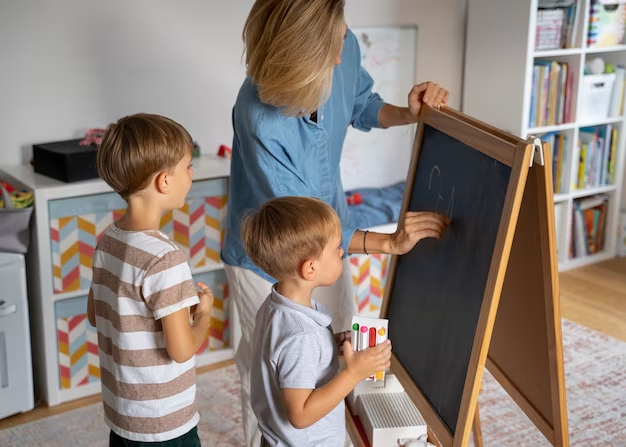Categories:
Tags:
Critical thinking is a fundamental skill in today’s world. More than just a desirable competency, it’s an essential tool for students to analyze, evaluate, and solve problems effectively in their daily lives.
Why is it essential to foster critical thinking from an early age?
In childhood, the brain is at its most receptive stage for learning. Children are naturally curious and eager to explore the world around them, yet they are also prone to accepting information without questioning it. This is where critical thinking comes into play, teaching them to ask questions, seek evidence, and consider diverse perspectives.
Encouraging critical thinking during primary education not only enhances academic performance but also prepares students to navigate a world filled with contradictory information. It helps them make informed decisions, develop empathy by considering opposing viewpoints, and approach problems with creativity.
Developing critical thinking
There are various simple and effective ways to implement critical thinking in the classroom:
- Critical thinking begins with curiosity
Start with questions, not answers. Encourage students to ask open-ended questions like:“Why does this happen?” “What would happen if we changed this variable?” “What other solutions could we explore?”
Use role-playing games where students become scientists, journalists, or detectives to investigate topics dynamically and spark their curiosity.
- Problem-based learning (PBL)
Introduce real-world challenges such as: “How can we reduce waste in our school?” “What would you do as a mayor facing a water crisis?” These tasks teach students to analyze data, collaborate in teams, and find creative solutions.
- Reflective reading, a key tool
Teach students not only to read, but to interpret and question texts. After a reading activity, ask them to identify the author’s point of view, detect biases, or propose alternative endings. With tools like ODILO, you can personalize these experiences and guide them with thought-provoking questions.
- Debates and Socratic dialogues, ideal for argumentation and reflection
Debates are exciting activities that require students to think critically, argue, and defend their ideas. Introduce age-appropriate topics such as:
- “Should animals live in zoos?”
- “Is it fair to share toys all the time?”
Socratic dialogues involve asking strategic questions to deepen reasoning. For instance, if a student says, “Animals should be free,” you might respond with: “What does being free mean for an animal?”or “Do you think an animal’s freedom is always better than its safety?”
- Stimulating logical thinking and problem-solving
Games like chess and digital challenges are not just fun; they help develop essential planning and logical reasoning skills. Platforms like ODILO integrate interactive tools to enrich the experience.
- Introducing interdisciplinary projects
Combine areas such as science, art, and math into a single project to broaden students’ perspectives. For example, a project on “creating a city of the future” can include urban planning (geography), design (art), and calculation (math). These projects are both creative and instructive, teaching students to approach problems from multiple angles.
The role of technology in developing critical thinking
In today’s context, technology can be a transformative tool when used effectively. Far from being mere entertainment, digital platforms have the potential to revolutionize how children learn and develop critical skills.
Personalized learning platforms
Platforms like ODILO create tailored learning environments where students can access an infinite library of multi-format digital resources, participate in interactive learning experiences, and receive immediate feedback. This fosters autonomy and challenges them to think beyond the surface.
Augmented reality and simulations
Augmented reality (AR) and immersive simulations are perfect for recreating complex scenarios. A student could “travel” to Ancient Greece to debate with philosophers or explore the solar system while making critical decisions about survival in space. These memorable experiences stimulate real-time critical thinking.
Educational apps and games
There are apps specifically designed to develop critical skills. Games that involve solving mysteries, strategizing, or programming robots encourage logical thinking and informed decision-making.
Leading the change in critical learning
At ODILO, we are committed to transforming learning into an active and personalized experience. Our tools are designed to ensure students not only consume information but also analyze, question, and apply it practically. We offer:
- Customizable digital libraries, where every student can explore topics of interest while learning critical research skills.
- Interactive resources, from guided readings to group challenges that foster debate and collaboration.
- Teacher training, equipping educators with the tools and methodologies to integrate these strategies effectively into their classrooms.
Fostering critical thinking from primary education is no small task, but its benefits are immeasurable. By implementing strategies like constant questioning, analytical reading, and problem-based learning, you equip students with lifelong tools.
Technology can be your greatest ally, offering innovative and customizable resources to enrich your classes. Remember, every question you inspire, every debate you ignite, and every challenge you pose helps build a generation of independent and responsible thinkers.
The future begins today, and you have the power to shape it. Are you ready to take on the challenge? Contact us to get started: www.odilo.us
